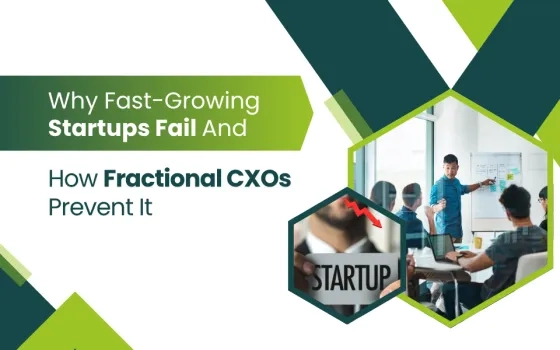The process of determining the worth of a new firm is known as startup valuation. Investors invest funds in exchange for business equity in seed funding rounds. Entrepreneurs require startup valuation to estimate shares to offer a seed investor in return for funding. An investor also demands a startup valuation to analyze the growth prospects and operations of the company. Therefore, getting a startup valuation is necessary for startups to secure funding. However, the advances in technology have saved new startups from spending a fortune on getting a valuation done with startup valuation software. This article dives deep into the technology, the importance of valuation software, and how it provides affordable startup valuation for new businesses.
What Is Startup Valuation Software?
Getting funding is an unavoidable aspect of every startup's journey. Startup valuation is critical for securing any funds from Angels or Venture Capitalists (VC) and getting a valuation on time is critical. If the new business takes too long, they may face great rivalry in securing funding. Additionally, obtaining a complete valuation can bore a hole in the pockets of new businesses. This is where valuation software comes in handy. A startup valuation software is a built-in tool available on the online medium of valuation businesses to provide quick and easy startup valuations. These efficient tools enable anyone to estimate the potential worth of their business with an affordable startup valuation in a matter of minutes.
How Does Startup Valuation Software Work?
Your valuation expert can choose between various methods when it comes to startup valuation; however, a startup valuation software utilizes a fixed set of methodologies to provide you with a summarized valuation report. The commonly used valuation methods by startup valuation software are- the Berkus method or checklist valuation method, scorecard valuation method, risk factor valuation method, and venture capital (VC) method. Let us look at these valuation methods in detail below-
Berkus Valuation Method
David Berkus, an angel investor, devised this strategy called the Checklist Valuation Method, also known as the Berkus approach. The checklist approach is a simple way of assessing a startup's pre-money valuation that entails assigning a monetary value to five external factors based on certain risk aspects. Each checklist item has a maximum value, and the startup is assessed to these values to get the pre-money valuation price. These five criteria are listed below:
- Basic Value and the acceptable risk magnitude
- Technology
- Execution
- Strategic alliances to minimize competition
- Product launch and sales strategies
Scorecard Valuation Method
Based on numerous parameters, this basic valuation technique compares the business to similar firms with similar core members, industry areas, and geography. It enables angel investors to calculate an average valuation for firms with the potential to grow but no income. The scorecard valuation method employs an equation to compare the startup to publicly endorsed businesses. Bill Payne, the originator of the Scorecard approach, established this way to revise the average valuation as necessary.
Risk Factor Valuation Method
The risk lowers as the firm begins to complete specified goals, such as acquiring paying clients or filing for a patent. As a result, the qualitative value rises. The risk factor approach is an approximate pre-money startup valuation method based on the basic value of a comparable business, which is judged for a total of 12 risk variables. The risk factor method includes questions most founders are concerned about at the outset of their fundraising journey, such as:
- How to evaluate a Startup in its early stages?
- How does the startup function regularly?
- What backups startup valuation to obtain funding?
VC Valuation Method
Harvard Business School Professor Bill Sahlman established the VC valuation approach in 1987. It is the appropriate choice for businesses that are still in the early stages and cannot yet generate revenue. It calculates pre-money valuation by initially calculating post-money valuation with industry parameters.
Unlike a traditional valuation, which can take days to finish when done by a professional valuation analyst, valuation software provides you with a valuation report in just three steps: answer a series of questions, receive your pre-money valuation, and download your summarized startup valuation report in pdf format.
When using valuation software, businesses do not need to prepare or provide documentation as needed with a valuation expert. However, they do need to fill up an online form that covers questions regarding the company’s management and workforce, operations, product/services, market, and strategies for marketing and sales. The software provides a completed valuation report in approximately 20 minutes after you’ve answered all the questions.
How Has Valuation Software Made It Easy To Value Your Startup?
A correct or incorrect startup valuation can make or break a contract, which is why the estimate of the company's true value must be dependable. Choosing the right reliable valuation professional to assess your company for a pre-seed valuation can be an expensive deal. While the process is an absolute necessity to secure funding from investors, the businesses need not pay a hefty sum for an accurate valuation. This is where the importance of valuation software holds significance.
Due to the limits of physical evidence, valuation models for startups differ from those utilized for mature organizations. Startup valuation for pre-revenue firms cannot rely solely on a linear calculation and necessitates a complete assessment of various aspects governed by market forces. Most valuation providers take extensive time and fool-proof analysis measures to give precise and accurate results, justifying the cost charged.
Valuation software, on the other hand, uses automation technology powered by AI to provide startup valuation with a set of predetermined questions. It does not give a detailed report but rather a concise overview to assist the business in pitching its concept, obtaining funds, and acquiring new projects. With startup valuation software, a summarized startup valuation is easily availed, which serves the intent of attracting VCs and stakeholders at a fraction of the cost charged by valuation experts for a complete valuation.
More Reasons To Choose A Valuation Software For Your Startup
1. Valuation software provides increased precision - Startup valuation is done by valuation software guarantees relevant and precise valuation reports as it functions without human errors. The technology works with an accurate and trusted methodology to analyze the answers provided by you while filling up the questionnaire. While answering generalized questions can be difficult for a business, you must choose answers that are most appropriate for your firm for a fair assessment.
The valuation report generated by the valuation software comprises your firm along with its market utility. It assesses the worth of a startup based on its current state and location. The software bases the analysis of the firm’s value on credible market data with a high level of authenticity. This ensures that the information and proof gathered are correct. Obtaining market data allows the commercial organization to make the report more authentic and informed while also lowering the chance of additional loss.
2. A greater understanding to secure funding and granting equity - The business valuation report generated by valuation software assists firms in a critical understanding of the market conditions and the value of their company. The valuation review provides a judgment on the value of shares, assets, or an interest in a company based on a thorough investigation and evaluation of the business, industry, and other important factors, which is properly documented and given out in detail. Business owners can use this information to back their possibility of success and pitch themselves to investors, and secure funding.
When employees are granted shareholdings, their interests become more strongly connected with those of the firm. With the information from the startup valuation report, the company can understand how much equity sharing they can afford as it diminishes the current owners' shareholding.
3. Establish shareholder transfer agreement - In the event of a buy/sell arrangement, a valuation technique specified in the agreement is employed to determine the sales price. When a certain event occurs triggering a buy/sell agreement, a contract between the members of an LLC provides for the sale of a member's stake in the company to the other members of the Organization.
4. Fair negotiation during Mergers and acquisitions - You must be able to illustrate the value of the company, its asset holdings, development in operations, and projected future growth during mergers and acquisitions or selling your business. A startup valuation produced by a startup valuation software can assist you in this regard. When businesses want to purchase or merge with your company for a minimal amount, you may use a startup valuation report to negotiate your way to the evaluated valuation numbers.
Regardless of these advantages, using startup valuation software is a quick and affordable way to get an understanding of the true value of startup businesses that every entrepreneur must have. Knowing your company’s true value comes in handy when you’re contemplating selling the business or when a sudden merging/acquisition offers itself, and valuation software provides a quick, easy, and affordable way to get startup valuation on the go.











![[Part 2] The Geopolitical Chessboard: Navigating the US-China AI Rivalry and Strategic Imperatives for Indian Tech Startups](https://community.nasscom.in/sites/default/files/styles/560_x_350/public/media/images/ChatGPT%20Image%20Jul%203%2C%202025%2C%2005_43_59%20PM-edited.png.webp?itok=95KRqnmN)






